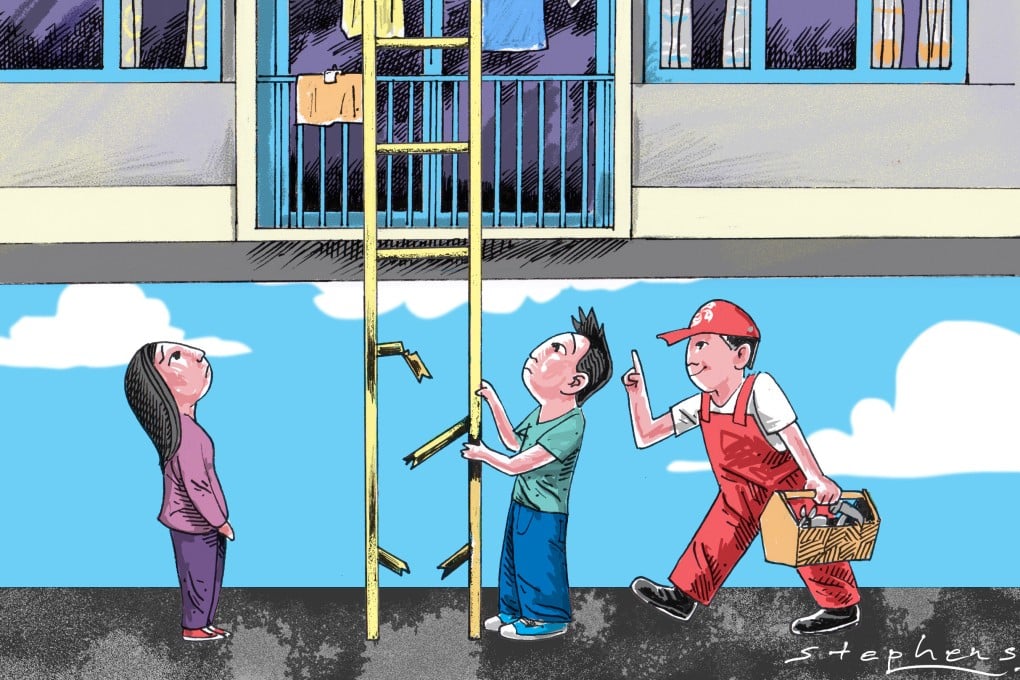Advertisement
Opinion | To mend broken housing ladder, let more young people buy subsidised resale flats
- More starter homes and youth hostels are good ideas that take time. Why not also free up existing housing resources by opening up the ‘white form’ scheme for a start?
- More help must be given so most young people can own a home
Reading Time:3 minutes
Why you can trust SCMP
0

The youth housing problem has been a catalyst of Hong Kong’s deep-seated conflicts. As housing prices hit new highs over the past two decades, outpacing young people’s income growth, home ownership has become increasingly elusive.
At Hong Kong’s 25th anniversary celebrations, President Xi Jinping highlighted four difficulties faced by the city’s young people, namely studies, employment, entrepreneurship and home ownership, and called for more opportunities to be created for their development and accomplishment.
Although housing prices have corrected in recent months, with more drops to come, home ownership remains difficult for most young people in the least affordable housing market in the world.
In Chief Executive John Lee Ka-chiu’s policy address, the government promised to support young people’s housing needs by launching more “starter home” projects and expanding the youth hostel scheme. Youth housing problems used to be overlooked in society, resulting in a decline in social mobility in recent years.
We are glad to see the government paying more attention. If most young people never set foot on the housing ladder, they will be excluded from the fruit of Hong Kong’s economic development. The socio-economic disparity between homeowners and the rest will widen further, exacerbating the wealth gap and jeopardising social stability.
To calculate the income-to-cost ratio for university graduates aged 25-29 years buying 1 sq ft in a Type A unit (less than 430 sq ft) in the New Territories, where housing prices are relatively low, we obtained information from the population census. In 2016, the monthly income of the top 10 per cent was HK$37,000 (US$4,751).
Advertisement

